Do you want to do more with your organic social media activities? Is working with many different team members and departments slowing you down?
In this article, you'll discover how to increase the success of your organic social activities while working with many people.
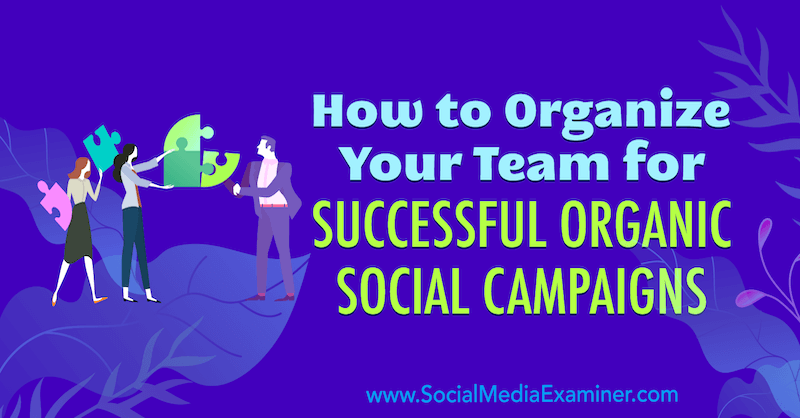
#1: Gather Your Foundational Campaign Elements
Start by building your organic campaign architecture from the ground up. Every marketing initiative needs a good foundation, especially if you're relying on earned media. Think of it as an orchestra with all of the instruments having to play in sync.
Follow these steps to get a better understanding of how you'll position yourself in the marketplace.
Define Brand Themes
To build a recognizable identity, focus on your branding. In today's marketplace, your products have to be more than just a pretty face. They have to be relatable, useful, and purposeful to capture a consumer's imagination.
Take a hard look at your company. How do you want to be remembered? Plan and coordinate your messaging, imagery, and color combinations to make your brand recognizable and memorable.
For inspiration, look at other brands online to see how they present themselves.
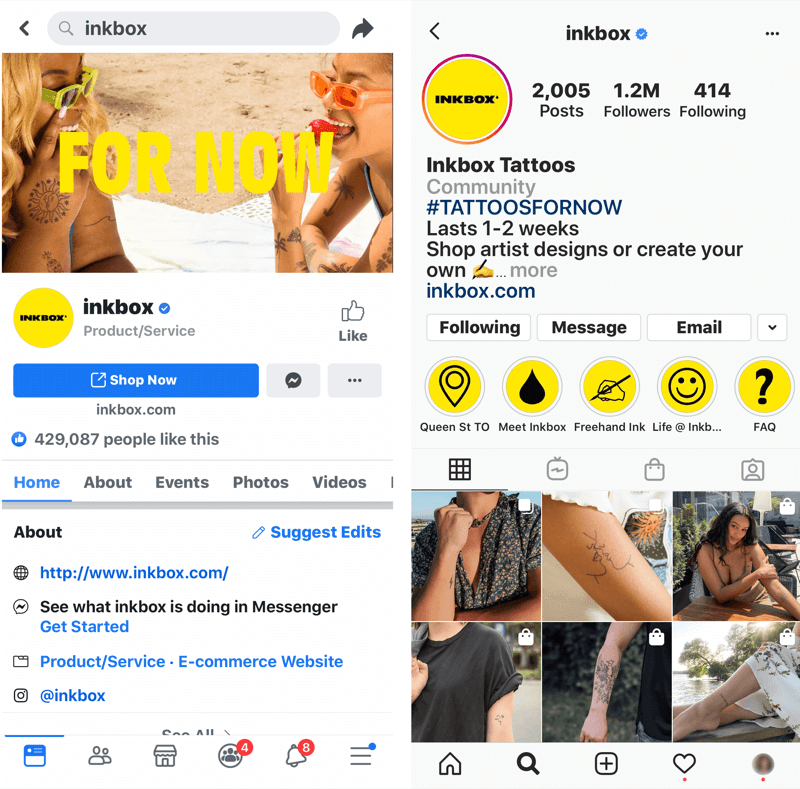
Establish Objectives
What do you want to achieve with your organic campaign? Goals are an important brick in your foundation. Set definite objectives to help you find the right message for your audience.
Identify the Competition
Who are your competitors? Look at your competitors' marketing campaigns to see their approach to connecting with customers. Use these insights to help craft a unique message of your own. If your competition is running a campaign similar to yours, tweak yours so you don't confuse your audience. Find something unique to your brand to stand out.
#2: Assign Marketing Team Roles for Your Campaign
To coordinate your organic social campaign, all of your team members need to be in sync. The more organized your team is, the more effective your message will be. Because this is earned media, you'll have to enlist and recruit a community to promote the message.
Decide Who's in Charge
Start by assigning a team member to direct your organic social campaign efforts. It's easier if everything goes through one person. This person's role will be to field comments, connect one-on-one with people, answer personal messages, and handle everything related to building a community.
The goal is to have a clear visual of all of the activity taking place on your communication channels to see who your followers are and what they need. This will make it easier to plan other organic initiatives.
Assign Tasks to Your Team
Find people in your company who can help deliver your campaign message. Believe it or not, they're everywhere and share the same goal as you. Here are some of the roles to consider assigning:
Get World-Class Marketing Training — All Year Long!
Are you facing doubt, uncertainty, or overwhelm? The Social Media Marketing Society can help.
Each month, you’ll receive training from trusted marketing experts, covering everything from AI to organic social marketing. When you join, you’ll also get immediate access to:
- A library of 100+ marketing trainings
- A community of like-minded marketers
- Monthly online community meetups
- Relevant news and trends updates
- Communications manager—Keeps the engine running and manages all communications.
- Graphic artist—Creates memes, videos, music, and GIFs for visual entertainment.
- Content creator—Writes the engaging content that will interest your target audience.
- Virtual assistant—Handles tasks like posting, monitoring, and listening to help support the job of campaign follow-up.
- Sales team—Offers insights and ideas by leveraging their knowledge of customer needs and inquiries.
- Internal advocates—Share their belief in your products. These advocates are company employees, friends, neighbors, and family. Ask them for small favors and repay them in kind by offering something of value. With an organic social campaign, offer advocates your products and ask them to promote those products to their social circles.
- Research team—Looks for opportunities that could help in your campaign strategy. This involves doing online research, talking to people, listening, and asking lots of questions.
To help you manage your campaign and team, consider using an organizational tool like Slack (free and paid plans starting at $8/month) or Basecamp ($99/month).
#3: Choose Your Organic Social Media Campaign Elements
There are many ways to take advantage of “free” marketing. I've made a few suggestions to help you along, some of which you likely have already tried. Use as many of these tactics as you can to get widespread coverage for your organic social campaign. The more of these tactics you use, the more effectively you'll amplify your message.
Share Engaging Social Media Content
Social media is still today's chosen method for organic marketing. Because unpaid content is a priority, think of creative ways to keep your posts in front of your target audience and engage them. Starting a conversation and being personal are always good tactics for connecting with your audience. Humor is another effective unifier.
Think of your audience and talk to them like they're your friends. Be sensitive to their needs and always celebrate them.

Build Social Proof via Reviews
If you have an eCommerce store, reviews are the best way to get organic traffic. Consumers turn to reviews to help make purchase decisions. Reviews validate your products and services and ultimately build trust in your brand.
Develop Personal Relationships
Building personal relationships with your followers is the best way to run a word-of-mouth campaign. This type of organic social campaign relies on user-generated content, recommendations, and trust. If customers enjoy your products, they'll post about those products and share information about your company on social media.
Hold Contests and Giveaways
The opportunity to win free products is a great enticement for any follower. I love entering contests to see if I win something. It brings out the gaming instinct in all of us.
Use a social platform like Instagram to host a giveaway. Set a deadline for the contest (a week is a good timeline) to build a sense of urgency. Also consider teaming up with similar brands and offering a joint contest with a wider range of free products. As brand participants post on their channels, they'll encourage comments, engagement, and follows. Of course, be mindful of the rules for each social platform.

Discover Proven Marketing Strategies and Tips
Want to go even deeper with your marketing? Check out the Social Media Marketing Podcast! Publishing weekly since 2012, the Social Media Marketing Podcast helps you navigate the constantly changing marketing jungle, with expert interviews from marketing pros.
But don’t let the name fool you. This show is about a lot more than just social media marketing. With over 600 episodes and millions of downloads each year, this show has been a trusted source for marketers for well over a decade.
Here's an Instagram contest promoted around an event. The giveaway offered users several products in exchange for comments, shares, and engagement.
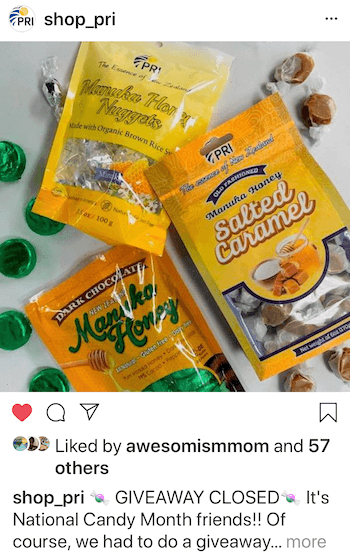
Use Tried-and-True Promotional Tactics
Consider using tried-and-true campaign techniques. How about a 2-for-1 coupon promotion? Or a free shipping promotion? These are timeless tactics but still very effective and appreciated by customers.
Team Up With Influencers
Enlist influencers who believe in your brand's mission. If you're promoting a vegan brand and support fighting animal cruelty, find influencers in those areas to help promote your content. If the influencers are passionate about the cause, they may promote your content without a fee.
Support Your Organic Social Efforts via Other Online Channels
Public relations can help you get the word out on a full range of media platforms, adding credibility and gravitas to your brand. Credible publications don't want payment for featuring you; all that's required is a well-crafted story angle to capture the imagination of an editor or writer. Persistence is key to getting to the right people, so keep at it! Getting free publicity is worth the time and effort.
Consider adding a public relations element to your next organic campaign. It's a good option for a major event like an anniversary, grand opening, or new and noteworthy product.
Email marketing is a form of organic marketing that's still relevant for promoting your products and services. The old-fashioned newsletter (the one for company updates) can be handy for promoting your campaigns.
Make use of an email marketing tool to promote additional services. Try it for the latest organic promotions such as sales, special offers, and more. Remember, your subscribers have chosen you from among other brands. They want to know when you have specials, rewards, and other promotions so they can take advantage of these opportunities. Keep them in the loop.

SEO is another important consideration for organic campaigns. Review your keywords and your position in search. Try new keywords that describe your business.
In addition to traditional SEO methods, also consider apps that will help you get traffic to your website. If you have a blog, you can organize your articles in a Flipboard magazine. This versatile app allows you to curate content from a website into a beautiful magazine, replacing the traditional brochure. Not only is it easy to read on a mobile device as you can see in the example below, but it can also send traffic to your website.
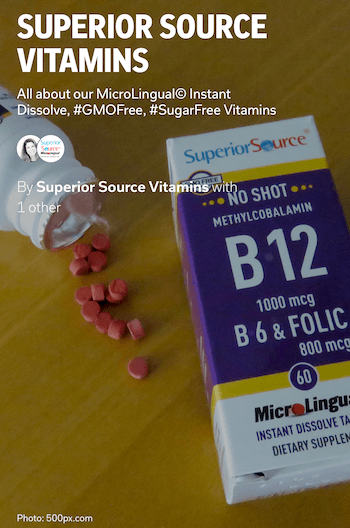
#4: Establish Benchmark Success Metrics
It's important to set goals or benchmarks for actions and results for your organic social campaigns, whether it's sales, brand awareness, click-throughs, or online chatter. Measuring that activity, however, is a challenge because analytics are scarce for organic marketing.
I've found Sprout Social ($60/month) to be very useful for evaluating organic social campaigns. It gives us an idea of how our client campaigns are performing and we can give our clients a comprehensive document that's easy to understand.
Once you have your goals established, choose the relevant key performance indicators (KPIs). To illustrate, if you're running a branding campaign, monitor the following:
- Brand mentions: See how many people are talking about your brand.
- Impressions: Find out how many times your content has been displayed. This can help you assess the reach of your content.
- Social engagement: Discover how many people have interacted with your brand, commented, liked, saved, and shared.
- Brand sentiment: Measure negative or positive sentiment to determine how users feel about your products and services.
A tool like Union Metrics ($49/month for a starter pack with three profiles) will assess brand sentiment and break it down by intensity, and positive and negative comments.
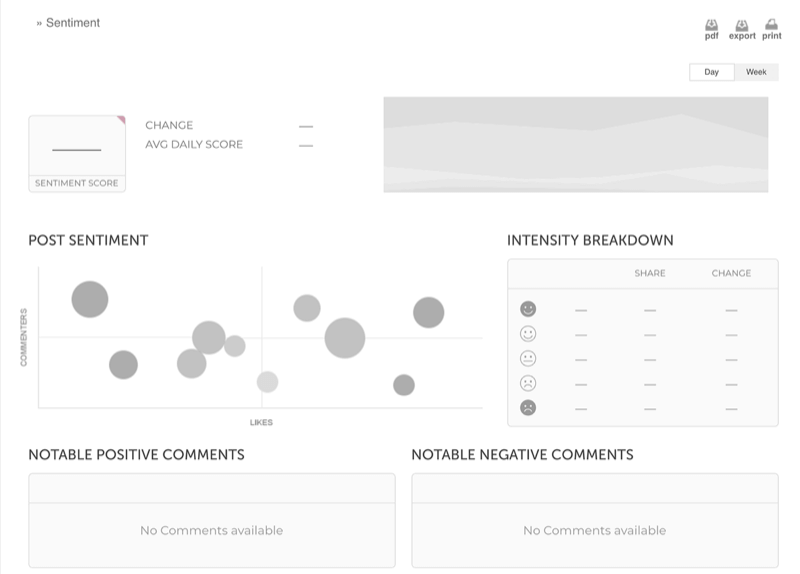
Conclusion
While many marketers rely solely on paid social media for their campaigns, there are still many opportunities to use organic campaigns to enhance your marketing. I believe that relying solely on paid media will diminish your chances of building relationships with your target audience.
Here are a few ways organic campaigns can help you reach your marketing goals:
- Develop trust—With organic campaigns, you can post content that speaks to your audience as a friend just having a conversation. You're building familiarity.
- Build your tribe—Spread your wings a little and build a tribe around your brand. Starbucks, for instance, will create drinks based on their tribe's tastes, such as the Unicorn Frappuccino designed for Millennials.
- Educate consumers—Every client I've ever had has told me that their customers need to learn a little more about their products and services. An organic campaign is a great way to do this.
- Start conversations—Talk to customers and get feedback about your products and services to learn what works and what needs to be modified.
What do you think? Have you tried organic campaigns to promote your products and services? What tactics have been most effective for your organic campaigns? Share your thoughts in the comments below.
More articles on social media marketing:
- Learn how to use Facebook lead ads without spending any money.
- Discover how to split test Facebook link preview images for more organic traffic to your website.
- Explore how bots can drive organic traffic.
Attention Agency Owners, Brand Marketers, and Consultants

Introducing the Marketing Agency Show–our newest podcast designed to explore the struggles of agency marketers.
Join show host and agency owner, Brooke Sellas, as she interviews agency marketers and digs deep into their biggest challenges. Explore topics like navigating rough economic times, leveraging AI, service diversification, client acquisition, and much more.
Just pull up your favorite podcast app, search for Marketing Agency Show and start listening. Or click the button below for more information.

